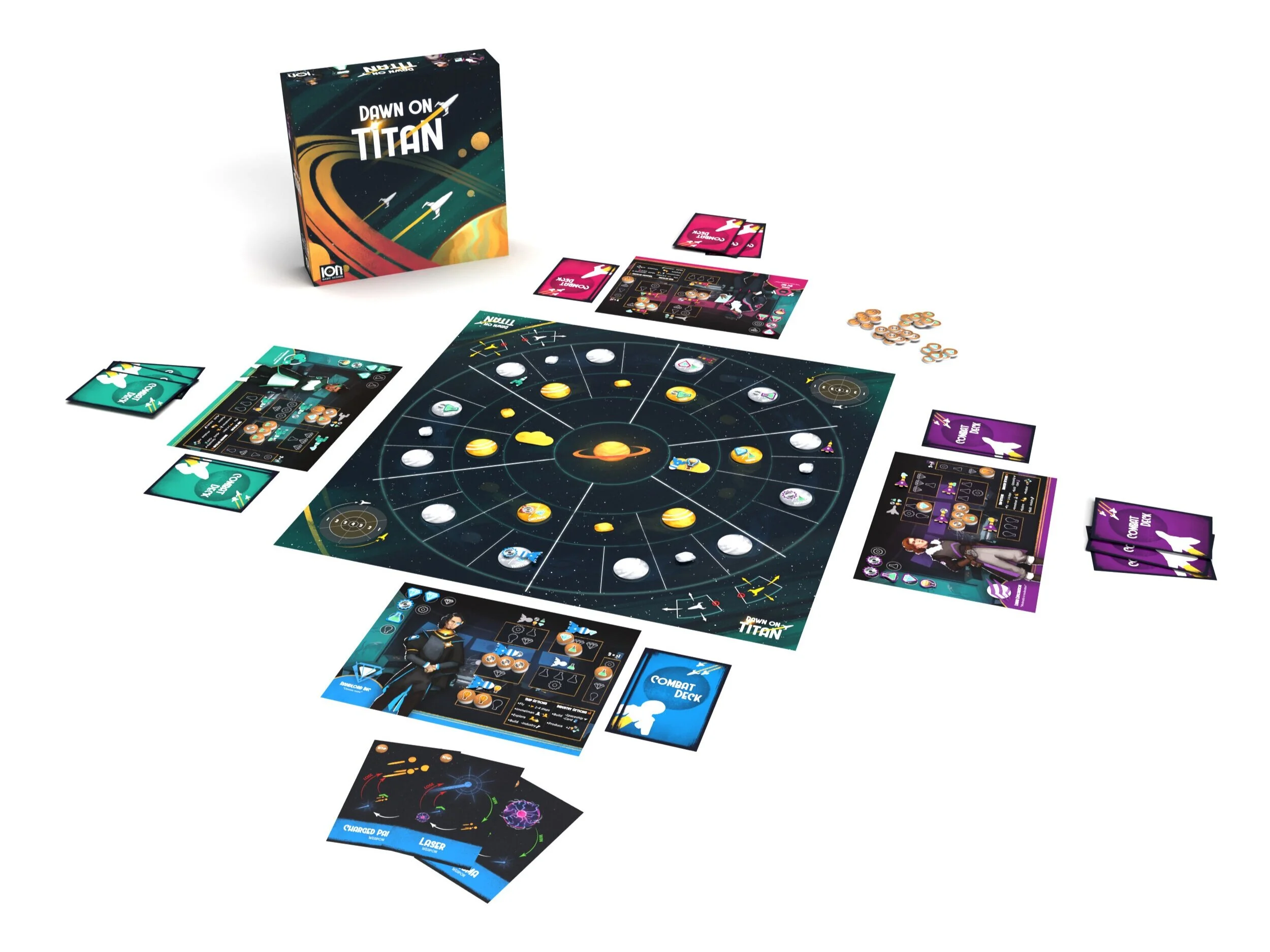Preview: DAWN ON TITAN Has Some Great Ideas, But Needs Some Refinement
Any board game needs to strike a balance of complexity in rules and in choice. When playing a game with too many rules and not enough interesting choices, it can feel as though players are constantly checking if they can do things and how they can do them, instead of actual choices to try and win. Complexity in rules can add depth and can create unique and interesting choices, but it needs to understand enough that players can focus on turn-by-turn choices, not trying to juggle a rule book and a game. Dawn On Titan has wrapped up its Kickstarter and is now in the major production stages of its game. I was able to play a rough version of the game and see how its components and rules played out. While the game does have some interesting complexities and cool rules, those rules sometime got in the way of deeper choices and genuine gameplay.
Dawn On Titan is a game of exploration, combat, and area control. The exploration of various moons of Saturn is probably the best part of the game. Players move according to their closeness to the planet. It makes logical sense and makes each movement on the board impactful and strategic. The mechanics of moving is also quite ingenious, players flip their ships to move clockwise or counterclockwise and can explore moons and asteroids if they are going in the same direction. Again, this is has a practical and logical application to real-life space travel. It is quite satisfying to slingshot yourself along the side of Saturn to get to the other side of the board.
The combat of Dawn On Titan is basically advanced Rock Paper Scissors. Players are given a set of cards that have three different types of weapons, each one losing to one while beating the other. Players secretly choose one and then reveal it, and that is combat. Cards can be bought to upgrade their current set of cards, but it still boils down to Rock Paper Scissors. Players can try and read each other’s faces, but it basically luck. When players lose, they lose a lot and can really slow down a player. If losing a fight wasn’t so impactful, then this luck-based system would be okay, but two or three wins or losses can easily determine the game. As interesting of a concept it is to have an upgraded version of Rock Paper Scissor, it doesn’t feel great to have a game of strategic positioning be dictated so much by the literal luck of the draw.
The area control of the game is a result of the previous two parts. Do I take this moon? Do I risk fighting my enemy here? Do I take a turn just moving to a more calm area of the map? This makes the game much more about positioning than building or raw combat. The only issue is that a player can be extremely strategically minded and pan out perfect maneuvers, but be beat out by losing to the bad luck of combat.
Dawn On Titan has a lot of great components, cool art, and some interesting movement and exploration concepts. The main thing holding me back from really enjoying it was the combat, which dictated more of the game than I think it should have. Others might be fine with this amount of luck, and if so, check out the Kickstarter here and come back to us with more coverage of upcoming board games.

